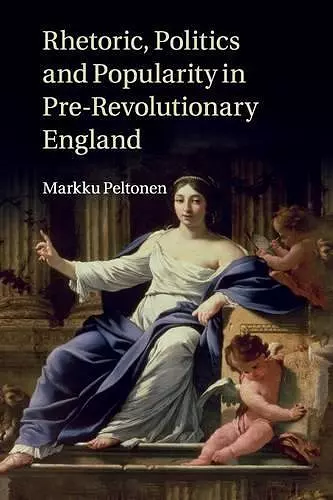Rhetoric, Politics and Popularity in Pre-Revolutionary England
Format:Paperback
Publisher:Cambridge University Press
Published:15th Dec '16
Currently unavailable, and unfortunately no date known when it will be back
This paperback is available in another edition too:
- Hardback£59.00(9781107028296)

This book provides an account of early modern political culture by emphasizing the centrality of humanist rhetoric in it.
Markku Peltonen examines the centrality of humanist rhetoric in the pre-revolutionary educational system and its vital contribution to the political culture of the period. He argues that humanism was crucial to the development of the participatory character of English politics and an important background for the politics of the period.Rhetoric, Politics and Popularity in Pre-Revolutionary England provides an account of the political thought and culture of Elizabethan and early Stuart England. It examines the centrality of humanist rhetoric in the pre-revolutionary educational system and its vital contribution to the political culture of the period. Humanism, Markku Peltonen argues, was crucial to the development of the participatory character of English politics as schoolboys were taught how to speak about taxation and foreign policy, liberty and tyranny. A series of case studies illustrates how pre-revolutionary Englishmen used the rhetorical tools their schoolmasters had taught them in political and parliamentary debates. The common people and the multitude were the orator's chief audience and eloquence was often seen as a popular art. However, there were also those who followed these developments with growing dismay and Peltonen examines further the ways in which populist elements in political rhetoric were questioned in pre-revolutionary England.
'It easily achieves its aims of asserting the centrality of rhetoric in prerevolutionary England and redefining exactly what that rhetoric was. But it also adds a new dimension to the debate on the popular political participation and breathes fresh life into the vigorous debate on early seventeenth-century politics. It demonstrates further ways in which those outside the governing elite were engaged in politics and, by establishing how men were educated, creates a foundation for reassessing the complex relationship between ideology, thought, and action with which historians have grappled for so long.' Natalie Mears, Renaissance Quarterly
ISBN: 9781316635612
Dimensions: 230mm x 152mm x 16mm
Weight: 420g
288 pages